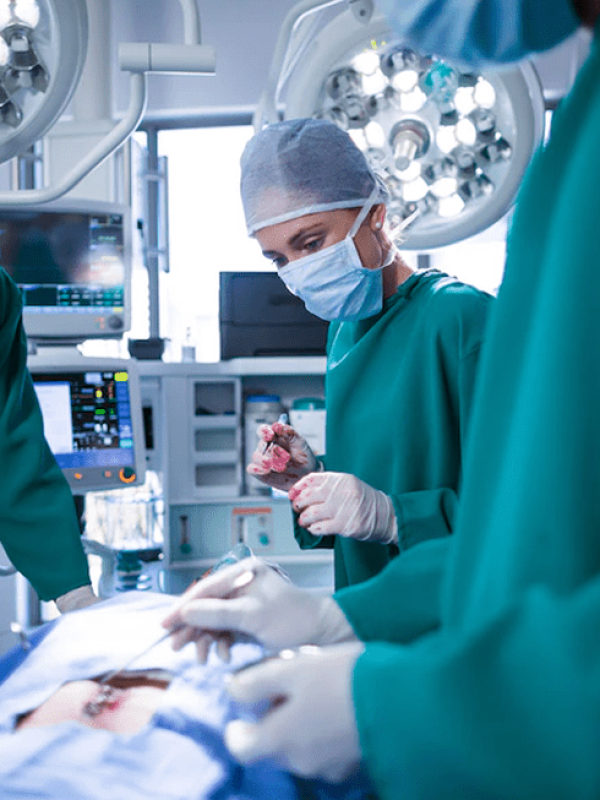Frequently Asked Questions
What surgeries does the general surgery department perform?
A variety of surgeries, including hernia repairs, gallbladder removals, appendectomies, colon resections, and breast surgeries, are frequently carried out in the general surgery department. They could also carry out more difficult operations, including laparoscopic surgery, gastrointestinal surgery, and bariatric surgery.
Is general surgery conducted as an inpatient or outpatient treatment plan?
The majority of general surgery operations are done as outpatient procedures, allowing patients to leave the hospital and go home the same day. However, some operations could necessitate an overnight hospital stay.
What may I expect both before and after the procedure?
You will meet with your surgeon before the operation to go over the procedure, potential risks, and healing period. Additionally, you will get information on how to prepare for the surgery, including any lab work or imaging procedures that are required. You will be given advice on how to take care of yourself at home after the procedure, including how to control your discomfort and take care of any wounds. In order to track your improvement and recovery, your surgeon will schedule follow-up sessions with you.
How long will it take for the recovery?
Depending on the surgery and the patient, recovery times might change. While recovery from certain treatments could be quicker than others, it might take weeks or even months. Before the procedure, your surgeon will discuss the expected recovery period with you.
Are there any risks involved in having general surgery?
There are risks involved with general surgery operations, including infection, bleeding, and anesthesia-related side effects, just like there are with any surgical treatment. Before the procedure, your surgeon will go over any possible hazards with you. Every attempt will be made to reduce these risks.
Should I stop taking any drugs before the procedure?
You’ll receive advice from your surgeon on which drugs you should stop taking before surgery. To lower the chance of difficulties, it is essential to follow these guidelines from your surgeon.
Will my surgery leave a scar?
Many general surgical operations are performed using laparoscopic or microsurgical methods, which might result in smaller or less noticeable scars. Some operations, however, could leave scars that are bigger or more obvious. Before the procedure, your surgeon will go over the anticipated scarring with you.
Will I have to make any adjustments to my lifestyle after my surgery?
Your surgeon may suggest that you adjust your lifestyle to support your recovery and avoid problems, depending on the type of surgery. For instance, patients who have undergone bariatric surgery would need to make major dietary and activity adjustments.
Can I eat or drink anything before my procedure?
You’ll receive instructions from your surgeon on when to stop eating and drinking before surgery. This is done to protect you from harm and lower the possibility of difficulties during the procedure.
What is one-day surgery?
Surgery that is performed in one day, generally referred to as “outpatient surgery,” does not require an overnight stay in the hospital. On the same day as their surgery, patients are allowed to go home.
What advantages can same-day surgeries offer?
Major benefits of one-day surgery include a shorter recovery period, a lesser cost, and a lower chance of infection. Additionally, it enables patients to recover more quickly and stay in the comfort of their own homes.

